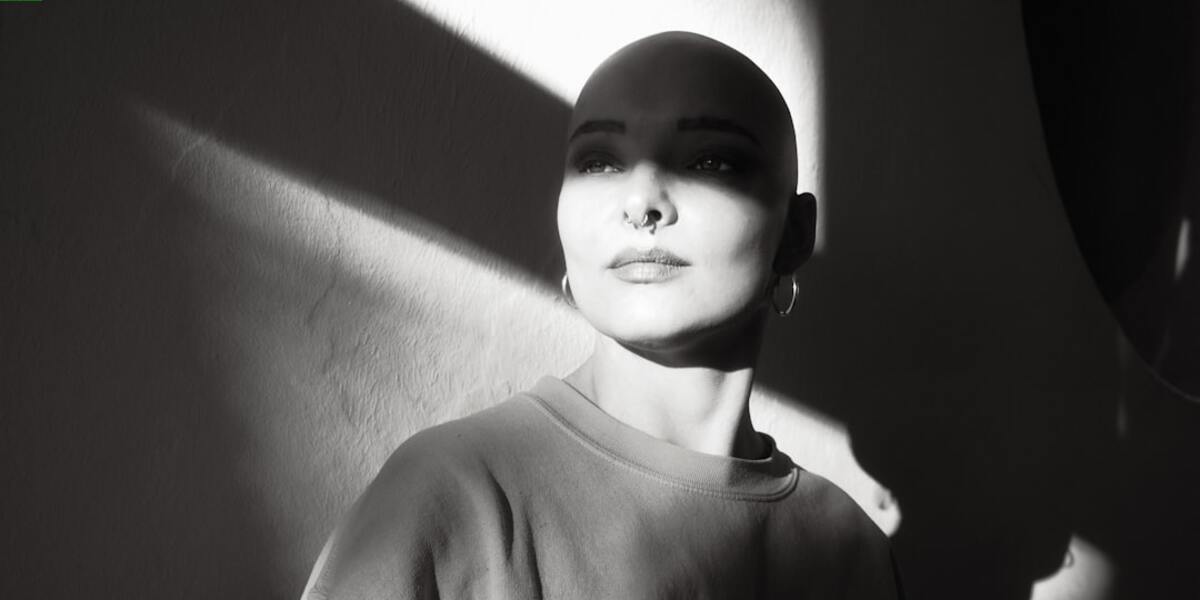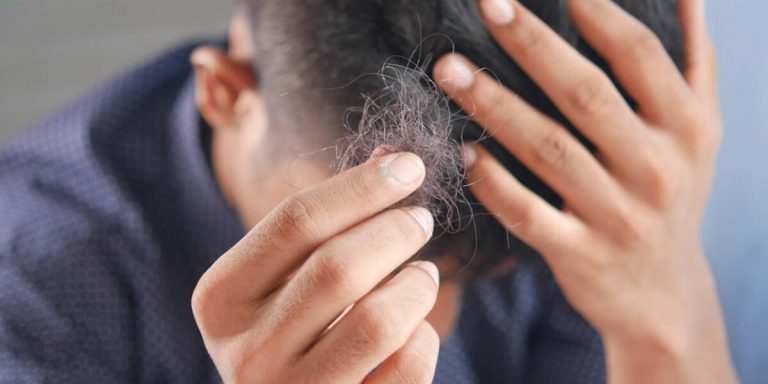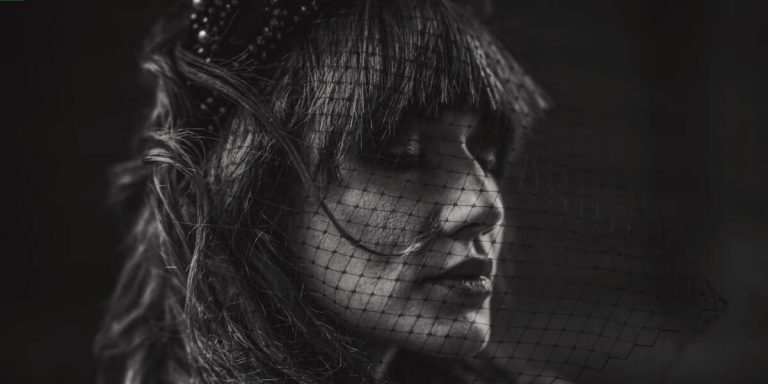Does Dehydration Cause Hair Loss? Uncovering the Truth Behind Thirst and Thinning Strands
For centuries, people have been searching for the exact causes behind hair loss, a condition that affects both men and women globally. A question that frequently comes up in this quest is – does dehydration cause hair loss? This article will focus on uncovering any potential connection between these two conditions.
The human body largely comprises water making it an essential element to our overall health and wellbeing. When we fail to meet the appropriate water intake levels, dehydration sets in with some visible effects which often spark concern – such as dull skin or dry mouth. But can insufficient hydration lead down the path of thinning strands and ultimately hair loss?
Let’s dive deeper into this issue.
Did you know?
Did you know? Chronic dehydration doesn’t only impact your physical wellbeing but also hampers hair health. According to a study in the Journal of Investigative Dermatology, insufficient water intake can disrupt the nutrient absorption process in hair follicles, leading to potential thinning and shedding!
Understanding the Link Between Dehydration and Hair Loss
As we navigate the labyrinth of hair loss causes, one factor that often gets overlooked is dehydration. Existing at the crux between hydration and healthy hair growth might seem far-fetched but it’s a reality many grapple with in 2023. Indeed, our body primarily runs on water; thus when it’s deprived of efficient levels of fluids, your scalp tissues and hair roots can become dry leading to an increase in problems related to thinning and shedding.
Dehydration connects directly with dullness, brittleness as well as premature death for your luscious locks because lack of proper hydration impedes essential nutrients from reaching the follicles proficiently.
By understanding this connection fully – you are taking proactive steps towards safeguarding not only your overall wellness but also preserving those precious strands atop your head.
The human body employs water as its fuel source—transporting essential vitamins throughout different systems—including nourishing one’s beautiful mane. When dehydrated over prolonged periods or even short-term intense dehydration incidents occur—the disbalance could make itself known via weaker tresses prone to breakage and fall out due to nutritional deficiencies caused by scarce fluid levels within the system.
In sum—yes! Dehydration potentially begets conditions conducive for increased rates in drowning dreams about fabulous hairstyles into harsh nightmares riddled with excessive hair damage woes like split-ends along ruthless bald patches tripping up otherwise mesmerizing shiny streams laden across scalps worldwide during these challenging years alike 2023!
The Biological Impact of Dehydration on Hair Follicles
When it comes to maintaining a healthy mane, hydration is of prime importance. Dehydration can cause several biological changes that contribute to hair loss. But, does dehydration cause hair loss?
The short answer is yes.
Dehydration has an undeniable impact on our body’s physiology and this includes the health of our hair follicles too. Our scalp consists mainly of water; thus, when its moisture level drops drastically due to insufficient fluid consumption or exposure to extreme heat conditions without proper care – the consequences are imminent!
Hair strands derive their suppleness and strength from keratin proteins which rely heavily on blood supply for nourishment. When we’re dehydrated, our body goes into survival mode where important organs such as heart and brain take precedence over less vital parts like our skin or hair in receiving blood flow.
This diversion leads to less provisioned nutrients for the growth cycle of your hairs causing them weak at roots leading toward breakage plus lesser shine en masse! Even more concerning is how dryness might lead towards accumulation around pores preventing new strand development – hence early thinning and even balding occasionally if not treated timely.
Recognizing Signs of Dehydration-Induced Hair Thinning
Dehydration doesn’t just leave you feeling thirsty; it can have far-reaching effects on the body’s general function, including impacting your hair health. Does dehydration cause hair loss? Yes, and understanding this will require an examination of signs that signal dehydration-induced hair thinning.
The first clear sign of such a predicament often takes shape as dry skin on the scalp. When there isn’t enough water in your body to maintain optimal moisture levels for all tissues -the scalp included- it tends to get parched too quickly. You might notice whitish flakes adorning your shoulders — not because of dandruff but due to excess dryness caused by lack of hydration!
Next comes brittle and weak strands susceptible to breakage due to insufficient nutritional supply from within our bodies. Dehydrated individuals could witness their once lustrous locks losing shine eventually turning dull or discolored over time if left unchecked.
A more noticeable indication is excessive shedding which may seem alarming at first glance but its association with poor fluid intake cannot be ignored especially when other reasons don’t factor in significantly.
Changes in growth patterns are another telltale red flag—don’t take lightly those hairs taking longer than usual before growing back after being shed since they’re likely suffering from insufficient hydration stifling normal hair cycle progression.
Common Misconceptions About Hydration and Hair Health
Contrary to popular belief, hydration plays a significant role in the overall health of your hair. It’s common for many people to overlook this factor when considering causes of hair loss, often focusing on aspects such as genetics or certain medical conditions. However, scientific research and evidence from 2023 suggest otherwise – dehydration could indeed be a contributing factor towards thinning tresses.
Dehydration essentially means that your body is not getting enough water to function properly, and since our scalp and hair require an adequate amount of moisture for normal growth cycles – lack thereof can lead to dryness-of-scalp issues like dandruff and eventually may trigger excessive shedding or even faster progression into pattern baldness. Inadequate water intake affects every cell within our system including those building blocks constituting our locks.
It’s crucial to avoid jumping to conclusions based on surface-level observations. Don’t assume you’re losing more hair because you didn’t drink enough water today. Chronic dehydration’s impact may become apparent over several months, gradually impeding the natural growth cycle and causing an early entry into the resting phase (telogen). Therefore, maintaining optimal hydration levels is essential for healthy hair maintenance, along with noting other lifestyle choices that contribute to better follicular health.
Debunking Myths: Does Drinking Water Affect hair growth?
Numerous myths circulate about the relationship between hydration and hair health. One particularly persistent falsehood is that inadequate water intake can lead to hair loss.
Let’s delve deeper into this popular misconception, targeted towards helping you better understand whether dehydration could actually be a cause of your thinning strands.
First off, staying hydrated does maintain overall body health – including that of our skin and scalp. But saying it directly impacts hair growth? That’s where things start getting muddled up as there are myriad factors at play when it comes to maintaining healthy tresses.
Does dehydration cause hair loss? The answer isn’t straightforward. While extreme cases of malnourishment or vitamin deficiency might lead to symptoms like hair loss, these conditions affect normal bodily functions such as blood circulation that supplies nutrients to your hair. However, drinking enough fluids is not a direct solution for preventing bald spots. Genetics often plays a more decisive role in hair loss.
Separating Facts from Fiction in Hydration and Scalp Nourishment
The subject of hair health has often witnessed the intertwining of facts and mythical notions. This is especially true when discussing hydration’s role in maintaining healthy tresses, hence requiring a thorough examination to separate fact from fiction.
It begins with understanding that our bodies are made up primarily of water – roughly 60%. Similarly, each strand on your head comprises about one-quarter water. With these statistics at hand, it’s no surprise why adequate hydration might be crucial for optimal scalp nourishment and overall hair health.
Digging deeper into the scientific aspects underlines this further; inadequate hydration can disturb the natural cycle of hair growth leading to brittle strands prone to breakage or even impaired follicle function resulting in thinning locks over time.
However, dermatologists affirm that while severe dehydration can affect skin resilience (including scalp), there isn’t any concrete evidence suggesting moderate bouts causing significant consequences like permanent alopecia.
Substantiating this point requires another elemental medical fact- extreme cases could imply other systemic issues such as malnutrition contributing independently towards potential balding patterns rather than dehydration being sole perpetrator here.
Discuss the appropriate ways to maintain optimum body fluid levels for holistic well-being. Keep in mind that these changes might not reduce actual shedding.
Holistic Approach to Preventing Hair Loss Due to Dehydration
A holistic approach to preventing hair loss due to dehydration starts with one simple, yet profound truth: water is essential for a healthy body function. Including the scalp and hair follicles. Dehydration can adversely affect your health in numerous ways, ranging from minor issues like fatigue and difficulty in concentrating, escalating up to severe complications such as heat injury or kidney problems over time.
Hair loss resulting from inadequate hydration may not be widely discussed; however it’s a reality that needs attention. When you are dehydrated, this impacts blood circulation which is critical for stimulating growth of new cells including those found on our scalps responsible for growing fresh strands of hair. Reduced blood flow means less nutrients reaching the scalp leading potentially towards weaker roots ultimately causing hair fall out prematurely before its natural lifecycle ends.
Understanding the role of proper hydration in promoting overall well-being, including hair health, is critical to addressing this issue holistically. To maintain hydration levels:
- Drink an adequate amount of water daily, typically around 8 glasses based on individual needs.
- Eat hydrating fruits and vegetables.
- Maintain an active lifestyle to ensure good circulation.
These practices can significantly reduce dehydration-related hair loss risks.
Integrating Hydrating Practices into Your Daily Routine for Healthy hair
Like a plant, your body needs water to grow and perform at its best. The same applies to your hair; it requires hydration for optimal growth and health. So does dehydration cause hair loss?
Absolutely, chronic dehydration can lead directly or indirectly to hair loss.
To combat this sneaky villain of good hair health, dive into these practical tips that you can incorporate into your daily routine:
1) Start Your Day with Water: Make it a habit first thing in the morning. Drinking two glasses of water after waking up helps activate internal organs as well as hydrate the scalp.
2) Carry A Bottle Everywhere: It’s not just gym equipment anymore! With one by your side during work sessions or errands you’re more likely sip throughout day ensuring consistent fluid intake.
Nutritional Strategies to Support both hydration levels and Medicine properties
Maintaining hydration levels is pivotal to your overall health and wellbeing. Still, many overlook the vital role it plays in preventing hair loss caused by dehydration. Hydration-related hair loss might leave you wondering – “does dehydration cause hair loss?” The answer is a resounding ‘yes.’ Our body needs ample water intake for cell growth, including our scalp’s cells.
To achieve adequate hydration, incorporate nutritional strategies into your daily meal plan. These strategies help maintain healthy fluid levels and combat dryness-induced hair fall. We will discuss some crucial points:
Stay Hydrated: Needless to say, drink enough fluids throughout the day. Consuming an optimal amount of water helps nourish follicles from within which aids in promoting robust roots and decreases breakage risk.
Fruits & Veggies with High Water Content: Don’t limit hydrating efforts just at drinking plain water; indulge yourself with fruits like melons or berries packed high in moisture content! Vegetables such as cucumbers are excellent sources too.
Omega-3 Rich Foods: These fatty acids possess potent anti-inflammatory effects that can reduce flaky scalps associated with excessive dryness – a prime culprit behind unnecessary shedding.
Vitamin C Enriched Foods: Known for their antioxidant capabilities, Vitamin-C-enriched foods combat oxidative stress— one factor leading to early greying or thinning strands. Citrus fruits serve as wonderful choices!
Conclusion
So, does dehydration cause hair loss? Putting it simply, yes. While not the sole culprit behind your thinning strands, inadequate water intake can and will exacerbate issues with hair growth and strength.
Keep in mind that hydration is one of many factors playing into your overall follicular health; a well-rounded approach tackling all potential causes may be necessary to truly curb hair loss.
We encourage you now to dive deeper! Arm yourself with knowledge about various other “Hair Loss Causes” on our website for proactive measures against this common issue affecting many across the globe. After all, understanding is half the battle won when it comes to conquering health concerns like this one.







